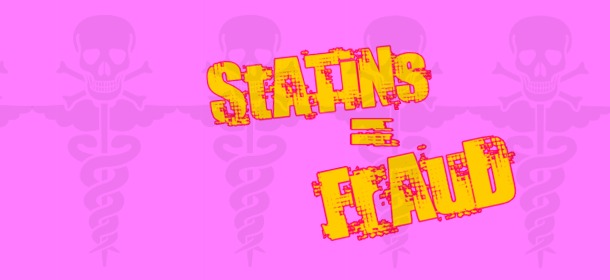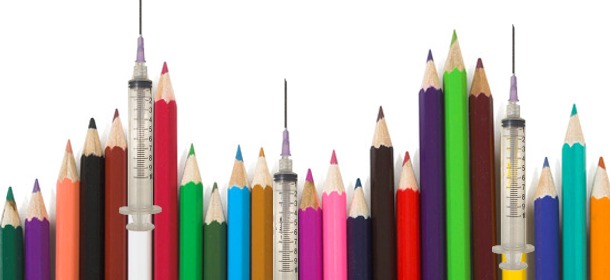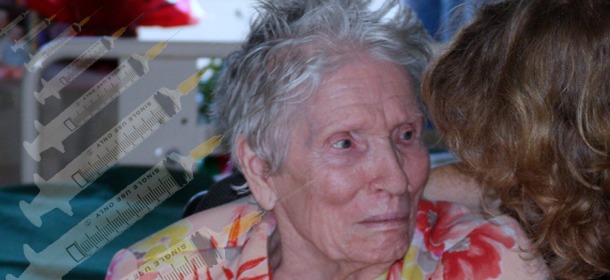Featured
What Price Fertility? Avoid IVF with Homeopathy.
Try homeopathy first! A safe, effective, natural alternative to conventional treatments for infertility.
Would you go to any lengths to conceive? In the wake of the Octomom soap opera playing out in her newly adopted state of California, Mary Aspinwall explores the complex issues surrounding conventional approaches to enhancing fertility.

Drawing by Avocadoface, Photostream at http://www.flickr.com/photos/avocadoface/ (Clickable link below article.)
by Mary Aspinwall, Registered Homeopath
Making babies, making history
Well over one million “test-tube,” or perhaps more accurately petri dish babies, have been born around the world since Louise Brown’s in vitro fertilization (IVF) birth in the UK made history in 1978. In the intervening three decades, improvements in technology have gradually enhanced the procedure to the point where your chances of having a baby following IVF are just over 1 in 4, according to 2006 figures from Canadian clinics.
Listen to Mary Aspinwall being interviewed about IVF on Inner Health!
With reduced natural fertility becoming increasingly prevalent in industrialized countries as a result of women delaying having children and a fall in male sperm counts, IVF has become rather commonplace and had almost fallen off the radar–until a woman named Nadya Suleman hit the headlines.
Initially, most of the coverage was upbeat. For only the second time in history a set of octuplets had not only been born, they had also survived. Thirty-one days later they were still alive and had broken the record for the world’s longest living octuplets.
Fertility Problem?
Here’s what you can do…
If you have been trying unsuccessfully to conceive for a year and both you and your partner are in good health, why not commit to a three-month program where you consciously look at your:
• Lifestyle
Build in more leisure or holiday time together and try to minimize stressful situations wherever you can. Sleep as much as you can.
Have a very simple meditation practice even if it is just focusing on your breath for five minutes morning and evening. If possible do this with your partner.
Keep sex pleasurable rather than a chore. If you think it’s a pain in the neck, you may be doing it wrong! Foreplay enhances the chance of female orgasm and female orgasm helps to draw the sperm closer to the egg.
• Diet
Make your diet brim with life. Maximize fresh, organic, locally grown fruit and vegetables. Start juicing. Consider adding a superfood powder mix or wheatgrass to your juice. Cut back on or preferably eliminate alcohol, drugs, cigarettes, nicotine patches, wheat, dairy, all processed foods, junk foods, red meat and mercury-contaminated fish, tea, and coffee. Have raw food if the climate is mild and lightly cooked food in colder climes.
• Exercise
Take regular, gentle, daily exercise, preferably with your partner, rather than a mad occasional fitness frenzy. Ideal exercise would be yoga, walking, swimming, great sex.
• Relationship
Make time for each other and share openly concerns you have about anything including, but not limited to, getting pregnant and not getting pregnant.
Add homeopathy to the mix! If you’ve given this a try for three months–or if you have symptoms relating to your reproductive organs or other health problems–get professional constitutional homeopathic treatment for both partners for six months. If homeopathy is not an option, get acupuncture over the same time period. Both homeopathy and acupuncture have a reputation for improving conception rates. Acupuncture sometimes suits a partner (often the male) who is less comfortable verbalizing symptoms to a homeopath.
A very last resort
If you’ve diligently tried all the above and are ready to investigate conventional treatment, inform yourselves first! Don’t take fertility drugs without investigating possible obvious causes of infertility, such as poor sperm counts and motility, fallopian tube injuries, genetic or prenatal conditions. Our hormonal systems are particularly delicate and fertility drugs are often like taking a sledgehammer to crack a nut. Weigh the risks and benefits first, before deciding, such as:
Pro: A one in four chance of conceiving and giving birth to a live baby.
Con: Increased risks to the health of the mother, risks of birth defects in the baby, risk of multiple birth, slight risk of mix up of eggs and sperm, possible ethical unease about either the freezing process or the later disposal of unwanted fertilized eggs, emotional stress, financial costs.
You, or someone you care about, may have already tried fertility treatment without success. If so consider homeopathy and lifestyle changes and you could be very pleasantly surprised.
Mamma mia!
It was not long, however before Nadya found herself not so much on a pedestal as under one. She attributed this backlash to the fact that she had made some unconventional lifestyle choices. First, she was not married or in a relationship. Second, she lived with her mother, who was not a party to her decision. Third, she was a student with limited means. Finally and most perplexing, Nadya already had six other children by the same means.
Apparently, she had been able to pay for the successive treatments from compensation payments received for a work-related back injury. Some unkind pundits wondered if Nadya had also suffered a head injury. If not, they mused, then something had drastically affected her judgement. Others directed their ire at her fertility specialist for what they saw as irresponsibly high levels of embryo implantation that would have been banned in the UK and other countries.
IVF Under the Microscope
So, thanks to Nadya, the whole topic of IVF is very much back in the public arena, which is a good thing, because it needs to be seen for what it is: a procedure that is fraught with moral, ethical, and safety concerns, that is costly on many levels, and that still has only a 27% success rate. The procedure is often very painful with its hormone shots in extremely high doses, egg retrievals, and implantations. It should always be a last rather than first resort.
A Disaster Waiting to Happen
Multiple births are extremely risky in terms of miscarriages, birth complications, prematurity, low birth weights, neonatal deaths, and long term damage. In Nadya’s case, the spontaneous splitting of two embryos in the womb into double sets of identical twins meant that six embryos became viable instead of eight. She had won the equivalent of an IVF super, super, super lottery—one of those “Be careful what you wish for,” situations. Yet, even if new legislation is introduced to limit the number of implantations, many problems remain.
Birth defects & more infertility
Even non-multiple IVF births carry significantly higher risks for the babies—heart defects, cleft lips and palates, and blocked or missing parts of the esophageal or anorectal tract, according to a 2008 analysis of data collected in the National Birth Defects Study in the US.
And a study in the October 2007 Journal of Chinese Medicine confirmed that ill effects may follow IVF children into adulthood. Researchers found that men conceived through IVF had a 46% lower sperm concentration and 45% lower sperm count than other men in the same age group. (No reliable studies relating to the fertility of IVF-born females is available.)
Understated dangers for the mammas
An anecdotal bit of evidence: In 1992 my friend gave birth to IVF twins. Her son was born with minor birth defects and went on to have some learning difficulties. A few years later, she returned to the same public, no-fee clinic and said she would like to try again. This time, off the record, the clinic strongly advised her against it. They mentioned risks they hadn’t highlighted before (inherent risks in carrying multiple babies as well as long-term health risks) and said it would be a pity if her children ended up with a mother who was ill or died prematurely.
High profile deaths
Around the same time, some high-profile women with histories of IVF attempts died of cancer. Journalists Ruth Picardie of The Guardian (UK) died of breast cancer at age 33, and Liz Tilberis (British Vogue and U.S. Harper’s Bazaar) died of ovarian cancer at age 51. Liz’s doctors suggested that her nine cycles of fertility treatments might have put her at a higher risk. Gilda Radner, comedienne and wife of Gene Wilder, who died of ovarian cancer at 42, had also taken fertility drugs.
In 2000, the well-respected Cochrane Collaboration, an independent organization that conducts reviews of medical studies, concluded that adverse effects of the fertility drug Clomid® “include a possible ovarian cancer risk.” Other studies have established a link between synthetic hormones, such as the contraceptive pill and “hormone replacement therapy,” with cancers, so it is probably only a matter of time before this is conclusively shown to be the case with fertility drugs, too, particularly given the high dosages used.
A National Institutes of Health study last year found women taking human menopausal gonadotropin (Pergonal®-type drugs) for at least six cycles had a risk of breast cancer two to three times greater than women who had never used fertility medication. Some experts believe that breast cancer, even more than ovarian cancer, may emerge as the greatest killer of those who undergo IVF cycles, particularly if those cycles fail.
Going “off label”
Another “watch this space” drug is Lupron®, which is used to artificially suppress the pituitary gland in order to control ovulation precisely enough to fit in with fertility doctors’ busy schedules. The drug was never approved for this purpose. In fact, its label specifies that it is not to be given to women intending to become pregnant or already pregnant. Prescribing drugs for an unapproved or “off-label” use is legal, but patients have a right to be informed of this and of the clearly stated risk to pregnancy.
A Safer, Natural Option
When month after month brings disappointment, why not turn to homeopathy? I have treated numerous individuals and couples struggling with infertility, and to their great joy and surprise, they often conceive with homeopathic constitutional treatment. Many of my colleagues have had similar clinical experience. While we don’t have much hard data on the subject, researchers in Germany did find that homeopathic treatment improved fertility in a small study of men who were treated constitutionally—and that it was one-thirtieth the expense per successful conception than comparable conventional care.*
Picture perfect but missing a piece
Ann and Daniel (not their real names) were very happily married and in their mid-thirties. They loved their work, were very successful, and had a beautiful home. Their lives were pretty much perfect, except for one major piece missing: they both longed to have children and it just wasn’t happening. After trying to get pregnant for more than a year, Ann decided to visit their doctor to find out if there was any reason why she and her husband hadn’t been able to conceive. She was hugely relieved to learn that her hormone levels and blood tests were normal and everything seemed okay. Daniel also had a check-up and was told that he, too, was in good health.
A medical mystery
Over the following months, Ann and Daniel attended a fertility clinic where Ann went through a series of examinations (including a laparoscopy) to see if her ovaries and fallopian tubes were working effectively. Once again, everything came back normal. Daniel had more tests too, which were all clear. It was a case of “unexplained infertility,” a now common problem for those trying to conceive in their thirties.
At this point, the consultant at the fertility clinic recommended that they try intrauterine insemination (where the woman takes fertility drugs and doctors inject sperm into the uterus), so Ann and Daniel began on the difficult road of injections and appointments at the clinic. Over the next few months, they had two unsuccessful attempts at IUI. Ann also discovered that even with the high dose of follicle-stimulating drugs, she had only produced a very small number of follicles—a poor response. At this point she began to despair.
Worse yet to come
A couple of months later, the clinic doctor informed Ann and Daniel that IVF seemed to be the only road for them. He suggested taking a closer look at Ann’s ovarian function as he was concerned she may be going into an early menopause. Ann was only 34 at the time, and she and her husband were devastated to think it might be true.
The doctor told them time was of the essence and that they should start IVF as soon as possible. The following month, they began the first cycle of IVF. Immediately, Ann experienced very unpleasant side effects. She felt bloated, sick, and generally unwell, but was determined to stick with it. She made regular trips to the clinic to measure the growth of her follicles.
Yet again, results showed a very poor response as she had produced few follicles. Worse still, when it got closer to the time of egg collection, one follicle appeared to be a lot bigger then the others, so the first cycle of IVF had to be abandoned. (A number of follicles need to measure around the same size in order for egg collection to be viable.)
Another path
Ann and Daniel were heartbroken and feeling at the ends of their tethers, but then they had an idea. They had heard that homeopathy could be very helpful for boosting fertility, and based on the recommendations of others, Ann made an appointment to see me.
She was 35 by the time we sat down together in January 2008. Ann and her husband had been trying to conceive for more than two years. She sadly told me of their two failed IUI and one abandoned IVF procedures, and said they were scheduled to try another round of IVF in two week’s time. I explained that while there were no guarantees, I had seen homeopathic treatment coupled with lifestyle changes boost fertility for others, and I’d be happy to see if we could help them. For best results, they’d both need treatment, I told her, but we’d start with Ann.
Ann’s story
Ann had been on the contraceptive pill for eight years but hadn’t taken it for the past three years. Many clients who come to me for help with fertility problems have been on the pill or other synthetic hormonal contraceptives or fertility drugs. I am not a fan of synthetic hormones, even so called “bio-identical” ones. The hormonal system is very delicate. Lying to your body that you are pregnant for years on end (as the pill does) seems to me a system fraught with risk for when you do actually want to be pregnant.
After an interview where Ann told me much about herself and symptoms, I prescribed a homeopathic medicine for her to take one time.
A good start, until …
A few weeks after taking the medicine, Ann was feeling better overall. Whereas before, she had described her energy as a 5 on a scale of 1 to 10; now she described it as an 8 or 9. She described the changes:
It was like someone flicked a switch and my mood got better. I feel much more energy. I’m more refreshed. I spring out of bed. The bloating disappeared and the skin is much better–it has completely stopped itching.
Then she started the next round of IVF. This time, they increased the dosage of drug injections in an attempt to boost her egg production. Immediately, she felt unwell and then …
A race to the emergency room
Ann developed an excruciating pain in her abdomen. Terrified, she was admitted to the hospital and given intravenous pain medicines. Further investigations revealed that her horrendous suffering was the result of an ovarian cyst measuring almost 5 cm (about 2 inches), which was pressing against her internal organs. Ann had never had cysts before and thought this was a very strange coincidence, so she asked the clinic whether it could have developed as a result of the IVF attempt. They insisted it was completely unrelated. Her own research later showed that it is commonly related.
Clinic lowers expectations
Over the next weeks, the fertility clinic monitored Ann carefully to see if the cyst would shrink before they could start another IVF cycle. But they also gave Ann and Daniel some very upsetting news: The cysts were a bad sign, indicating that her ovaries were functioning very poorly. In addition, a recent scan showed that one of her ovaries didn’t appear to be functioning at all.
In mid-February, I sat with Ann and Daniel for a long time and listened to their story. Daniel explained how very concerned he was about the effects of the fertility drugs on Ann’s system. He loved her so much, he just couldn’t bear to think of her having to suffer that kind of pain or of being harmed in any way. He confided to Ann that he really wanted them to take a break from fertility treatment.
The ticking clock roars
I was also concerned about the effects of the fertility drugs and thought a break would be a good idea. Ann really needed to be convinced, though. She kept remembering the specialist’s warning that time was against them! Ann felt like her chances of getting pregnant were very slim, and there was not a moment to lose.
During the consultation, they discussed their lifestyle, their work, other health issues, the IVF process, and lots more. I made recommendations to them about their diets, lifestyle, and exercise. I wanted them both to be so bursting with energy and love for life that they couldn’t help but make more life … a baby. I also consulted with them individually for homeopathic treatment.
Ann feels great
Except for the painful cyst experience after the IVF treatment, Ann continued to feel better since her homeopathy treatment. Her energy level remained high and she was thrilled with the positive changes:
My inhaler ran out and I didn’t really notice. The skin on my arms is almost all cleared up. And I haven’t had to rock myself to sleep either … although that is coming back now a little.
Her cyst had reduced in size to 3.8cm.
Ann had clearly experienced many health improvements, but her symptoms were beginning to creep back, so I gave her another dose of the homeopathic medicine.
When I saw Ann a month later in mid-March, she said she was still improving: “I’m a lot better. I’m in good form. I feel I’m back to my old self.” She was inhaler-free and her skin looked great. Her health had improved in many ways, and the cyst had shrunk to 3cm. I gave her some spare tablets and told her what signals to look for to indicate her remedy needed repeating ..
Taking a break
Ann felt more relaxed, more in control, and happier than she had felt in a very long time. She even agreed to take a few months out from fertility treatment, much to the delight of her husband! Ann and Daniel continued seeing me once a month over the next couple of months and continued to see more positive results in their health.
In June, they decided to take a vacation as part of their regime of being good to themselves! Ann had suggested to Daniel that after returning from their vacation, they would give a short cycle of IVF another attempt. She felt positive about her plan as she now felt her physical health had been restored and she was also stronger emotionally.
The breakthrough
Upon returning to the fertility clinic after their break, the nurses commented on how well Ann looked and said that everything looked good, that there were no cysts, and that they would be happy to start the IVF cycle on the first day of Ann’s next period.
Much to Ann and Daniel’s delight and excitement, that day never arrived because Ann was already pregnant! She had become pregnant on their vacation, totally naturally.
Words cannot do justice to the excitement Ann and Daniel felt. They waited until the first trimester had passed before letting me know, and then I was also jumping for joy. Ann is still overwhelmed with emotion and euphoria when she thinks back to that day when she and Daniel saw the positive result on the pregnancy test. They are looking forward to the arrival of their baby soon.
One stop shopping
Both Ann and Daniel feel homeopathy played a huge part in this wonderful outcome. They thanked me, saying they found the whole experience thoroughly positive and encouraging. Ann said that I was the first person to say things like, “When you get pregnant …” The reason I was so confident that it was only a matter of time before she would get pregnant was that I could see that the homeopathic treatment was helping with all her other symptoms, so her chances of conceiving were also going to be vastly increased. The same was also true for Daniel, who had received a different homeopathic treatment.
The great thing about homeopathy is it is “one stop shopping.” It works from the inside out to restore the whole person to health. By listening carefully to both Ann and Daniel and repertorizing their symptoms, I was able to prescribe homeopathic remedies for their individual needs. This helped them achieve their dream via a truly holistic, natural, safe, and inexpensive medicine.
Ann and Daniel know that they are not alone and that, sadly, infertility is an increasingly prevalent issue. That is why they wanted to share this story with others who are going through the same thing.
Although there are no guarantees that homeopathy will help you and your partner to conceive, a well-selected remedy will optimize your overall well-being and make it more likely that you will be able to conceive naturally.
Footnote:
* Gerhard and E. Wallis, Individualized homeopathic therapy for male infertility, Homeopathy (2002)91, 133-144.
Mary Aspinwall writes and produces the engaging blog, Homeopathy World, is a regular columnist for Homeopathy Today, an expert contributor for Homeopathy Radio and Natural News, editor of “The Clinical Medicine Guide”, and author of A Basic Guide to Homeopathy. She can be contacted here.
Tagged in vitro fertilization homeopathy, in vitro fertilization risks, ivf homeopathy, ivf risks, pregnancy homeopathy















Pingback: What Price Fertility? Avoid IVF with Homeopathy. | Gaia Health | Herbal Allergy Remedies
Pingback: Scientists Plan to ‘Cure’ Menopause with Lab-Created Human Eggs from Stem Cells | Gaia Health
Pingback: Homeopathy for Fertility… Mary Aspinwall – TheWombRoom
Pingback: Homeopathy, Diet, Exercise and Sex! oooh Saucy! – TheWombRoom
Pingback: Homeopathy & Medication… – TheWombRoom
Pingback: Medical Ethicist: Moral Obligation to Make Superior Babies with IVF | Gaia Health
Pingback: Selon un spécialiste de l’éthique médicale, l’obligation morale est de faire des bébés supérieurs avec la fécondation in vitro « Actualités Alternatives « Je veux de l'info
Pingback: Homeopathy for Fertility… Mary Aspinwall | The Womb Room
Pingback: Homeopathy, Diet, Exercise and Sex! oooh Saucy! | The Womb Room